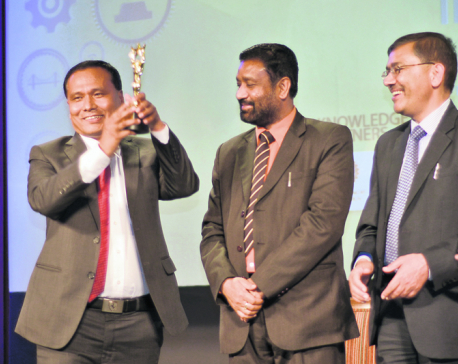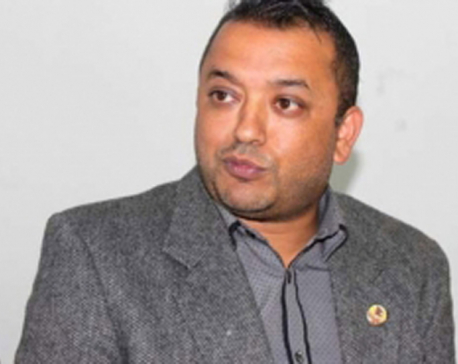
OR
pre-budget interaction
Private sector leaders urge govt to up budget for infra sector
Published On: May 9, 2017 10:03 AM NPT By: Republica | @RepublicaNepal
KATHMANDU, May 9: Private sector leaders have urged the government to prioritize infrastructure development in the upcoming budget for Fiscal Year 2017/18.
Speaking at a pre-budget interaction organized by the Nepal Rastra Bank (NRB) in Kathmandu on Monday, representatives from various business sectors said that the new budget should allocate adequate resources to the infrastructure sector for sustain economic growth.
“Our infrastructures are either inadequate or weak. The government can create fund for infrastructure development for addressing infrastructure deficit,” Hari Bhakta Sharma, president of the Confederation of Nepalese Industries, said, speaking at the interaction.
Kamalesh Agrawal, the general secretary of Nepal Chamber of Commerce, agreed with Sharma.
“The government has been setting aside funds for infrastructure projects, but it is no better than peanuts. Now, it should allocate adequate budget, specifying time-bound plan to spend it,” said Agrawal.
The central bank holds pre-budget interaction with stakeholders every year and presents its report to the government for incorporating necessary suggestions in the budget.
Though the new constitution requires the government to present the budget by Jestha 15 (May end), it is still uncertain whether the budget for the upcoming fiscal year will be tabled in line with the constitution requirement due to code of conduct for the local level elections.
Stakeholders also urged the government not to levy additional taxes on businesses in the federal setup. As the upcoming budget will be the first budget to come after the country went into federal structure, it is expected to transfer resources to the local units directly.
“There should be integrated revenue system in the federal system so that business firms do not need to pay high taxes. Otherwise, federalism will have very negative impact on business and economy,” argued Agrawal.
Business leaders also drew the attention of the government toward the need to reform taxation system. “People’s purchasing power has weakened as the living cost is very high in Nepal.
So, the government should reduce the income tax slab. Efforts should also be made to widen tax net,” Sharma added.
Speaking at the interaction, Ashok Kumar Todi, an executive member of the Federation of Nepalese Chambers of Commerce and Industry (FNCCI), said that the upcoming budget should provide incentive to industries so that they can compete in the international market.
“The cost of doing business and cost of production in Nepal is very high in comparison to our neighboring countries. The government should offer cash and other incentives like refinance facility,” he said, urging the government to form a high-level export promotion board and simplify the existing process of getting refinance and cash incentive.
Representatives of small and cottage industries also urged the government to promote and provide facilities to small and microenterprises for encouraging local production and import substitution.
NRB Governor Chiranjibi Nepal said that there was adequate fiscal space in the country and that it should be utilized for the development of the country.
You May Like This

Private sector urged to partner with govt for infra development
KATHMANDU, Feb 21: Minister for Energy Janardan Sharma has said that the government machinery should shed its dillydallying working style citing... Read More...

Govt and private sector clueless on impact of India's GST
KATHMANDU, July 7: Both the private sector and the government of Nepal are clueless about the impact the Goods and Services... Read More...

Govt to hire docs for districts from private sector: Gagan Thapa
KATHMANDU, Jan 20: After doctors did not show any interest in working on contract at government hospitals outside Kathmandu Valley,... Read More...





Just In
- CM Kandel requests Finance Minister Pun to put Karnali province in priority in upcoming budget
- Australia reduces TR visa age limit and duration as it implements stricter regulations for foreign students
- Govt aims to surpass Rs 10 trillion GDP mark in next five years
- Govt appoints 77 Liaison Officers for mountain climbing management for spring season
- EC decides to permit public vehicles to operate freely on day of by-election
- Fugitive arrested after 26 years
- Indian Potash Ltd secures contract to bring 30,000 tons of urea within 107 days
- CAN adds four players to squad for T20 series against West Indies 'A'













Leave A Comment